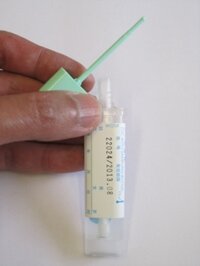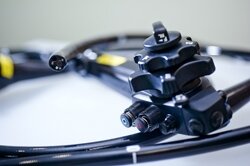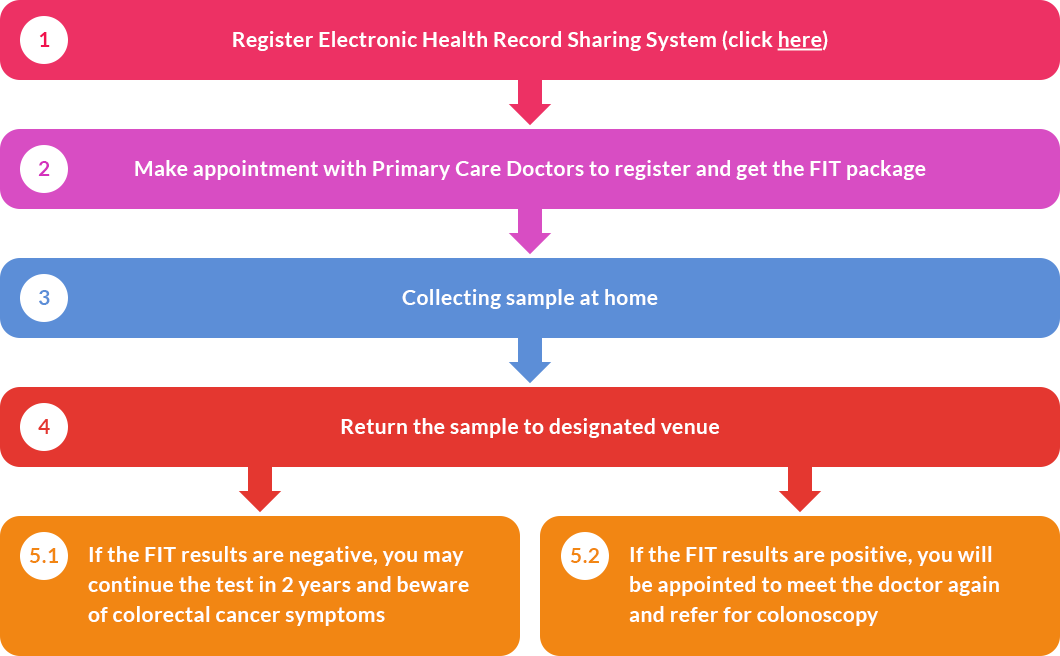Health check items - Colon
Colon

The colon capsule endoscopy is a new endoscopic technique. Through a pill-sized capsule with cameras on both ends and a small data recorder, medical staff can view the inner wall of the colon This examination time is usually within 9 hours, it will then be naturally passed out during bowel opening. This examination is accurate, simple, safe, low-invasive and also require no sedatives. Subjects’ discomfort and inconvenience can be effectively minimized.
In order to ensure a clear image of the inner wall of colon, subjects have to follow the instructions to have bowel preparation in advance.
.jpg)
Related Information:
General Enquiry
Colorectal Cancer
Inflammatory Bowel Disease
Irritable Bowel Syndrome (IBS)
A colonoscope is a flexible tube-like device with a camera for visual inspection of the colon (large intestine), which includes the rectum, sigmoid colon, descending colon, transverse colon, ascending colon, cecum and terminal ileum.
If a polyp is found during a colonoscopy, it will be removed, and sent for a pathology review. If other abnormalities are found, a biopsy can be taken and sent for pathology review.
A colonoscopy can be performed for screening purposes or for diagnostic evaluation. A screening is for individuals who do not have symptoms and is used to remove polyps and/or detect early colorectal cancer (CRC). International guidelines recommend CRC screening, such as by colonoscopy, starting at 50 years old in general. CRC screening has been shown in multiple studies to reduce the risk of CRC, by removing polyps and preventing their progression to CRC.
High-risk patients, particularly those with a first degree relative (parents, siblings or children) with CRC, should be screened earlier at 40 years old. Recent research conducted at the Chinese University of Hong Kong has also shown that siblings of patients with high risk adenomas are also at a higher risk of developing polyps, and likely benefit from earlier screening.
A colonoscopy is also performed for diagnostic evaluation of symptoms such as rectal bleeding, changes in bowel movements, abdominal pain, tenesmus, unexplained weight loss and anaemia, which may be symptoms of CRC.
Once a physician has recommended a colonoscopy, detailed preprocedural instructions, which include dietary restriction (low residue diet), a colon cleansing routine and use of prescribed medications, will be provided. The purpose of this preparation is to cleanse the colon to ensure a complete and accurate examination. It is important to follow these instructions closely. Patients are recommended to be accompanied by a family member or friend for their safety after bowel preparation.
Prior to the examination, intravenous sedation will be administered to reduce patient discomfort and anxiety. The flexible colonoscope will then be introduced through the anus to start the examination, which usually takes approximately 30minutes to perform. If a polyp is found, the endoscopist can immediately remove it with forceps or a wire loop and send the specimen for pathology review. Colonoscopies are in general well tolerated, and there should be no pain with polypectomy.
A report of the colonoscopy findings will be provided. (we will provide the full colonoscopy report after the exam finish, but patient need to wait for histology report, if any) If polyps or biopsies were taken during the colonoscopy, pathology results will be provided as soon as possible (normally within a few weeks). Patients can in general leave the endoscopy centre the same day and are recommended to be accompanied by family members or friends. Patients should avoid operating heavy machinery, driving or signing any important documents or contracts for the rest of the day.
Colonoscopies by experienced endoscopists are in general well tolerated and safe. Risks of serious complications are less than 1 in 1000 chance, and include cardiopulmonary complications, perforation and bleeding, etc. If these events occur, admission for monitoring, further investigations and treatments will be prescribed per standard practice.
What is the cost of colonoscopy?
The price of colonoscopy will depend on whether there are any polyps, the number of polyps, and medication. Please contact our staff at 3946 6033 for further details or check out our homepage to see what we can do for your health.

Related Information:
General Enquiry
Colorectal Cancer
Inflammatory Bowel Disease

For those who were born between 1944-1970
(Starts from 1 Jan 2020)
Colorectal cancer screening programme is being organized by Department of Health with the purpose in conducting colorectal cancer screening to health eligible subjects. In response to such meaningful programme, our centre has joined the programme to provide the service. Subjects will first need to conduct the faecal immunochemical test (FIT) within the programme. If the result is positive, the subject can then choose to conduct colonoscopy provided by colorectal cancer screening programme as a follow up on a free-of-charge basis. If you would like to understand more on eligibility criteria, please click here.
DH Colorectal cancer screening programme procedures
Related Information:
General Enquiry
Colorectal Cancer

General Enquiry











